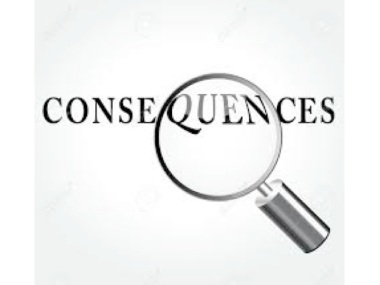The fear of giving a presentation is very real among professionals. Many people dread it and try to avoid it.
However, being able to speak confidently in front of an audience is becoming necessary for career success. In the information age, you are only as valuable as the ideas you have to share.
Many course participants have asked me how to look and sound confident during a presentation.
When I tell them that being prepared is key, these are some replies I get:
- But it’s not really a presentation. I just need to share information during meetings, and my focus is really on the information I’m sharing. Isn’t that preparation enough? And really, these are not presentations.
- I don’t think it’s about being prepared. I’m just not very good at speaking, and to speak in front of people – that’s just hard.
- But I always prepare! I have all my details on my slides. In fact, I spend a lot of time on my slides. But I still feel I’m not able to connect with my audience.

Here’s a quick self-assessment on your presentation savvy. Answer True or False:
(1) The best way to be prepared for a presentation is to have your notes in hand. During the presentation, just refer to your notes and read it out to your audience. If you read clearly, that makes up for the lack of body language and eye contact.
(2) You can’t possibly establish eye contact with everyone in the audience, so it’s better to look at the screen and talk from there. This way, at least you don’t miss out any points.
(3) When presenting, it is OK to have your hands in your pockets. It is better than waving them around or gesturing too much.
(4) While presenting, you should stay at one spot. Walking around just distracts the audience.
(5) When you use PowerPoint slides, put as much information as you can on your slides. That way you won’t have to worry about missing out any details.
See if your observations are accurate:
(1) The best way to be prepared for a presentation is to have your notes in hand. During the presentation, just refer to your notes and read it out to your audience. If you read clearly, that makes up for the lack of body language and eye contact.
FALSE. Just reading from your notes is the quickest way to lose your audience’s interest and attention. You might as well just give them the notes and have them read by themselves.
Your audience need eye contact. They need you to convey your message not just through your words, but also through your body language. They need to feel that you are engaging them, not just talking at them.
(2) You can’t possibly establish eye contact with everyone in the audience, so it’s better to look at the screen and talk from there. This way, at least you don’t miss out any points.
FALSE. Even if you cannot establish eye contact with everyone in a large audience, you should “sweep” the room with your eyes.
If the audience is watching your back, your profile, or your bent head most of the time, they lose interest very quickly. (Also, they may not be able to hear you if you are not facing them.)
(3) When presenting, it is OK to have your hands in your pockets. It is better than waving them around or gesturing too much.
FALSE. Putting your hands in your pockets as you speak gives the signal that you would rather not be involved in whatever you are speaking about.
It’s a casual gesture, and when prolonged, can convey a lack of commitment.
(4) While presenting, you should stay at one spot. Walking around just distracts the audience.
IT DEPENDS. You can choose to move around or stay at one spot. If you decide to move, take at least three steps. Any fewer and you may end up rocking on your feet.
For some topics and room setups, staying at one spot might be less distracting. For others, moving around might provide the necessary visual interest to keep your audience interested.
(5) When you use PowerPoint slides, put as much information as you can on your slides. That way you won’t have to worry about missing out any details.
FALSE. You want your audience to pay attention to you. If you have text on the screen, the audience will feel compelled to read them. Why compete with your own slides?
List the key points for the audience, and take the audience through each point. Without detailed information on the slides, they will focus their attention on you.
 If you have to give a presentation, careful and effective preparations will help you to manage your anxiety and ensure success.
If you have to give a presentation, careful and effective preparations will help you to manage your anxiety and ensure success.
Even if you are called on suddenly to speak before an audience, know the basic principles of visual and vocal projections, and you will engage the audience and make an impact.







 If you have to give a presentation, careful and effective preparations will help you to manage your anxiety and ensure success.
If you have to give a presentation, careful and effective preparations will help you to manage your anxiety and ensure success.








